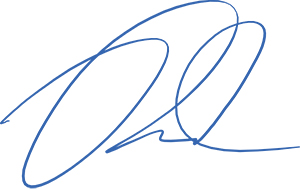


Obviously, the ad campaign and its magical button were simply a metaphor for the convenience associated with doing business with Staples. However, the campaign and its now iconic button became wildly successful because they touched a nerve, tapping into something more primal: our innate desire for simplicity. It is easy to understand the metaphor’s appeal. The thought of pushing a button and something, or someone, resolving the day’s challenges is infinitely attractive.
The image conveyed dovetailed perfectly with the times and our building expectations of convenience delivered just in time via the promise of a technically enhanced future. More alluring still was the implication that a push of the button, or its app equivalent, would enable us to transfer the burden of daily life and, with it, personal responsibility. Nice, right?
Throughout the years, a chorus of evangelical futurists in harmony with sophisticated marketing techniques made it easy to believe that we had arrived—easy became an expectation. The illusion of a life of ease distributed on-demand via a panacea of innovation is an alluring one and easily embraced. However, the crushing realization that our journey into the future will demand more of us, not less, is now crashing in on comfort zones that complacency and expectation congealed into entitlement. Its impact once again exposes a primordial truth: The future is not a pre-packaged product with lifetime guarantees delivered on-demand via a button or an app.
The inescapable fact has always been that our responsibility, both as individuals and in teams, is to become someone else’s Easy Button. It is our experience, expertise, and yes, determination, imagination, and grit to solve for the specialized and complicated that paves the path forward, not only for ourselves, but for others. It is this combination of intellect and division of labor across disciplines that defines human progress.
No doubt, the pursuit of progress is messy. It is both incremental and perpetual. As a result, each generation simply passes to the next a baton of accomplishment that carries with it the weight of both their misguided efforts and their brilliance in the form of unrealized potential. The baton today’s generations now hold certainly possesses seemingly unlimited amounts of each. Our challenge, our responsibility, is no different than those that came before us: correct for previous mistakes, seize unrealize potential, and pass along new possibilities.

